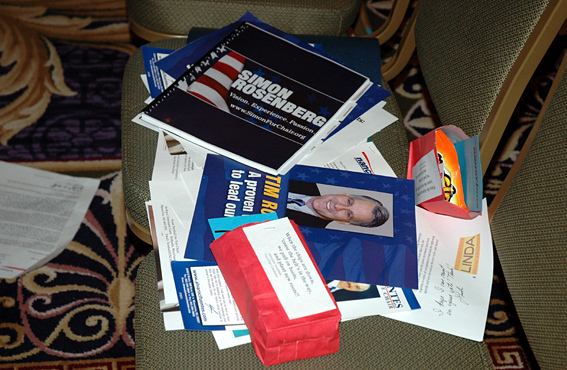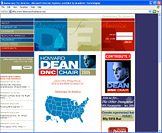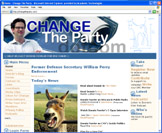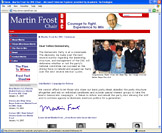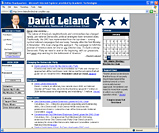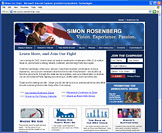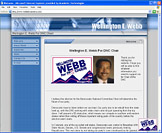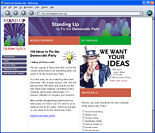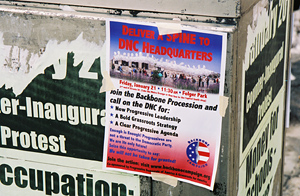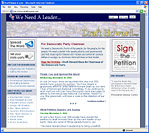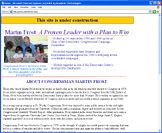After the Defeat...Democrats Do Some Soul Searching
DLC "The Road Back" forum (Nov. 10, 2004)
Sen. Edward Kennedy Speech "A Democratic Blueprint for America's Future" (Jan. 12, 2005)
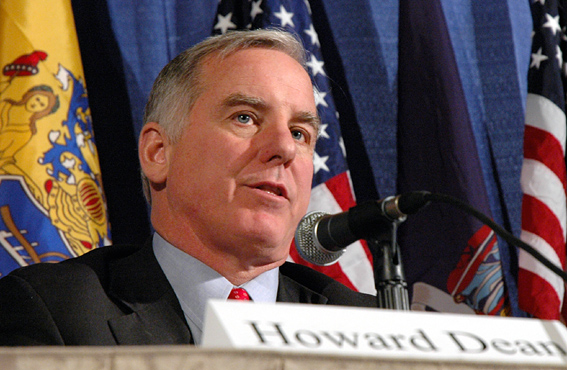
      |
| Howard
Dean and six other candidates for DNC chairman spoke at the DNC's
Eastern Regional Caucus meeting in New York City on January 29,
2005. |
Howard Dean set to lead the Democratic National Committee
Terry McAuliffe, who has led the DNC as its chair since 2001, announced in February 2004 that he would not seek a second term. The 447 members of the DNC will elect a new party chair at their meeting in Washington, DC on February 10-12, 2005. According to a DNC fact sheet: "Anyone may run to become the Chair or an officer of the DNC. Each candidate has to submit a nominating petition with the signatures of 20 DNC members. The nominating petition must be submitted to the Office of the Secretary no later than 8 p.m. two days prior to the DNC meeting." (For Republicans the process of choosing a new chair was much simpler. On November 15 President Bush announced he would ask the RNC to elect Bush-Cheney '04 campaign manager Ken Mehlman as the party's chair at their winter meeting in January).
The field of possible successors to McAuliffe evolved during late 2004 and early 2005. Within a week of November 2, supporters of Howard Dean put up a Draft Howard website (Dean did not formally announce until January 11). Many names were bandied about, but some never formally became candidates for the position. New York businessman Leo J. Hindery Jr. withdrew from consideration on December 10, former Gov. Jim Blanchard (MI) briefly explored a bid, and Clinton associate and Democratic activist Harold Ickes and former Dallas May Ron Kirk withdrew on January 4.
Seven candidates actively competed for the position: former Gov. Howard Dean (VT), campaign operative Donnie Fowler, former Rep. Martin Frost (TX), former Ohio Democratic chair David Leland, former Indiana congressman and 9/11 commission member Tim Roemer, New Democrat Network founder and president Simon Rosenberg, and former Denver Mayor Wellington Webb. They appeared at a number of forums, notably the Association of State Democratic Chairs meeting held in Orlando, FL in December and the DNC's four regional caucus meetings held in January.
Jan. 10, 2005 - Southern Regional Caucus (Atlanta, GA)
Jan. 15, 2005 - Midwest Regional Caucus (St. Louis, MO)
Jan. 22, 2005 - Western Regional Caucus (Sacramento, CA)
Jan. 29, 2005 - Eastern Regional Caucus (New York, NY)
In addition to speaking to Democratic activists, candidates touted endorsements and support from current and former Democratic party leaders and elected officials. Much of the communication happened behind the scenes; direct communications from the candidates with the 447 DNC members were particularly important.
Howard Dean was seen as the frontrunner by virtue of the success he had shown in fundraising and mobilizing grassroots activity during his recent campaign for the Democratic presidential nomination. By January 30 Dean had endorsements of about 50 DNC members. However some opposed Dean, seeing him as liberal, a Northeasterner and something of a loose cannon who would be a disastrous choice for the party.
On January 31 the ASDC, comprising state party chairs and vice chairs, endorsed Dean, providing a huge boost to his candidacy (of 96 votes Dean received 56, Fowler 21 and others the rest). On February 1 the AFL-CIO announced it would make no formal endorsement in the race for chair. Wellington Webb, Martin Frost and David Leland all bowed out immediately following these developments as did Simon Rosenberg and Donnie Fowler by the end of the week. Tim Roemer also left the race before the DNC's meeting.
In addition to the race for chair, there was strong competition for three vice chair positions (two female and one male). Seeking election to the vice chair position were incumbent Linda Chavez-Thompson, Executive Vice President of the AFL-CIO; Marjorie Fields Harris, supported by Rev. Al Sharpton; DNC Deputy Chair Susie Turnbull (MD); State Senator Dianne Wilkerson (MA); Nancy Jane Woodside (UT); Alvaro Cifuentes, Chair of the DNC Hispanic Caucus; Nelson Diaz (PA); and Rep. Mike Honda (CA); and Rep. Gregory Meeks (NY).
 |
 |
 |
 |
 |
 |
 |
 |
Bottom: Cifuentes, Diaz, Honda. (Meeks also spoke).

